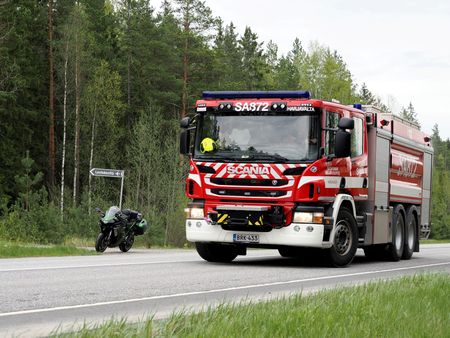ROME (Reuters) -Italian Prime Minister Giorgia Meloni warned on Saturday that rigid green policies could devastate Europe’s industrial base, and called for a more cautious approach to the ecological transition that protects economic and social stability.
Speaking after meeting German Chancellor Friedrich Merz, Meloni said the European Union’s push towards electrification, particularly in the automotive sector, risked undermining the continent’s manufacturing strength.
“I have often said that in a desert there is nothing green,” Meloni told reporters in Rome. “Before anything else, we must fight the desertification of European industry.”
She said that alternative fuels such as biofuels and hydrogen must play a central role in Europe’s green strategy.
Meloni criticised the EU’s past regulatory approach as too inflexible, saying it had “crushed” sectors like the automotive industry. She also expressed concern that Europe was depending on electric vehicle supply chains dominated by non-European countries, calling this a strategic vulnerability.
“I continue to believe it is counterproductive to focus solely on the electric transition, where the supply chains are not controlled by Europe, but by other actors,” she said.
Meloni urged the European Commission to go further in revising key aspects of the so-called Green Deal, including new emissions calculations that account for the entire production cycle of a vehicle, not just tailpipe emissions.
The European Parliament earlier this month voted to soften rules for European automakers, meaning they will not have to comply with EU CO2 emissions targets for cars and vans that could have led to fines of up to 15 billion euros ($17 billion).
Following heavy lobbying, the European Commission proposed allowing automakers to meet the targets based on their average emissions over the period 2025-2027, rather than just this year.
Italy and Germany — Europe’s two largest manufacturing economies — should lead efforts to restore competitiveness, Meloni said, adding that the automotive sector was one area where bilateral cooperation could make a decisive impact.
(Reporting by Crispian BalmerEditing by Mark Potter)










